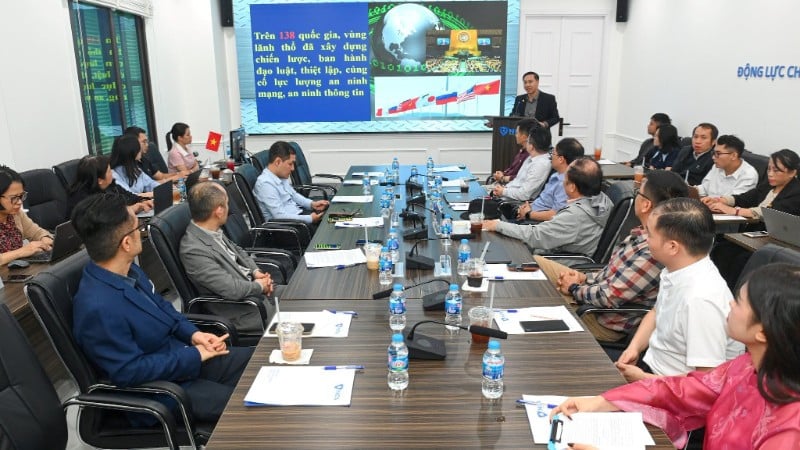
The draft Law on Cyber Security 2025, which is being discussed by the National Assembly, therefore has a key significance: legal unification, establishing a unified management axis and creating a foundation for technological autonomy, a vital factor of digital sovereignty .
Old defensive formation against new wave of attack
The explosive digital transformation is bringing Vietnam into an era where every individual, agency, and business lives, works, and transacts in the online environment. But along with the convenience comes the unprecedented escalation of cyber attacks: Deepfake fraud, infiltration of important systems, data theft... showing that the old defenses are no longer strong enough to withstand.
Deepfakes impersonating authorities have become a common practice, occurring daily despite repeated warnings. Many victims still believe the impersonators even when authorities directly intervene...
Not only is the number of attacks increasing rapidly, the scale of attacks is also alarming. According to a survey by the National Cyber Security Association (NCA), in 2024 alone, Vietnam recorded more than 650,000 cyber attacks, while globally there are up to 2.9 million victims every minute. After 28 years of internet connection, Vietnam has taken advantage of the development opportunities from digital technology , but the level of deep dependence on network infrastructure also increases the risk of insecurity.
Lieutenant Colonel Nguyen Dinh Do Thi, Deputy Head of the Cyber Security Department, Department of Cyber Security and High-Tech Crime Prevention ( Ministry of Public Security ) warned: "A bigger challenge is the dependence on foreign cyber security products and platforms, which is considered one of three groups of risks that directly impact national security and social order and safety."
Imported solutions are difficult to customize to Vietnam's specific characteristics, slow to fix errors, and many large data leaks have shown weaknesses that are difficult to control. The more dependent, the more vulnerable to intrusion and loss of initiative in incident response.
At the same time, personal data is collected, bought and sold illegally in public; some businesses secretly analyze and sell data to third parties; many agencies disclose information due to lax management. From these realities, many experts affirm that being strong in technology is not enough, we must have self-sufficient defense solutions to protect national sovereignty in the digital space.
Unifying laws to create a corridor to protect digital sovereignty
The shortcomings in the current defense posture show that Vietnam needs a strong and unified legal framework to protect cyberspace. After nearly 10 years of implementation, the 2015 Law on Cyber Security and the 2018 Law on Cyber Security have revealed overlaps and duplications and have not kept up with the development speed of digital technology, big data, cloud computing and artificial intelligence. The overlapping regulations on protecting information systems, data and preventing cyber attacks make it difficult for businesses to comply, while management agencies lack a unified basis for coordination in implementation.
Mr. Tran Quoc Chinh, Vice Chairman of CMC Corporation, General Director of CMC Cyber Security, said that the parallel existence of two laws makes it difficult for many units to determine the main legal framework and limits the effectiveness of cybersecurity investment. Therefore, the consolidation of laws in the draft Cyber Security Law 2025 is not only a rearrangement of regulations, but also a strategic step to create a unified, transparent and more favorable legal corridor for state management and business operations.
The draft law inherits the regulations that are still in effect, and at the same time adds many core contents such as data security, connection and information sharing mechanism, timely incident reporting, IP address identification for investigation purposes, etc. The construction in a shortened order demonstrates the view that cybersecurity is an essential component of national security and investment in cybersecurity is investment in sustainable development.
The law consolidation also creates a basis for Vietnam to effectively implement the United Nations Hanoi Convention against Cybercrime, with mechanisms for 24/7 information sharing, technical support and cross-border investigation coordination.
As General and Minister of Public Security Luong Tam Quang emphasized, in the digital age, no country, organization or enterprise can ensure cybersecurity on its own. On that basis, the 2025 Cyber Security Law not only thoroughly addresses legal overlaps, but also establishes a unified management axis with the Ministry of Public Security as the focal point for state management of cybersecurity, in line with the spirit of clear division of labor and decentralization of Resolution No. 18.
In the digital age, no country, organization or enterprise can ensure cybersecurity on its own. On that basis, the 2025 Cybersecurity Law not only thoroughly addresses legal overlaps, but also establishes a unified management axis with the Ministry of Public Security as the focal point for state management of cybersecurity, in line with the spirit of clear division of labor and decentralization of Resolution No. 18.
General, Minister of Public Security Luong Tam Quang
An important highlight of the draft Law on Cyber Security 2025 is to shift the focus from “protection” to “autonomy”. Currently, 75% of cyber security products and services in Vietnam are imported, while many domestic solutions with research and intellectual property capabilities still face the barrier of “preferring foreign goods”. According to Associate Professor, Dr. Nguyen Ai Viet, Director of the Institute of Technology and Newly Generated Intelligence, any system needs a domestic defense layer, although it cannot be as strong as foreign products immediately, but it has the advantage of quick response, suitable for specific characteristics and reduces the risk of dependence.
The draft law clearly specifies the State's responsibility in enhancing autonomy: encouraging the production-testing-evaluation-inspection of digital devices and network services; developing technical standards and regulations; controlling risks from the moment a product is created; promoting research, mastering, and developing cybersecurity technology... The important new point is that for the first time, cybersecurity products, solutions, and services are included in the scope of regulation and are required to be certified for conformity before being circulated.
Mr. Nguyen Minh Duc, Chairman of the Cyber Security Services Club (National Cyber Security Association), CEO of CyRadar Information Security Joint Stock Company, said that the Cyber Security Law 2025 not only protects digital sovereignty but also opens up a transparent and standardized market, creating important economic incentives for Vietnamese enterprises. He emphasized that prioritizing the use of domestic cybersecurity products is a key policy to form a large enough market, thereby enhancing national autonomy.
Assessing that the new Law will help the market become clearer, Vice Chairman of CMC Group, General Director of CMC Cyber Security Tran Quoc Chinh proposed to develop a set of criteria for evaluating and ranking national cybersecurity, while allowing qualified enterprises to participate in independent evaluation of level 1-3 systems to increase objectivity and reduce the burden on management agencies.
In addition, the law stipulates that the budget for cybersecurity in state agencies must reach at least 10% of the information technology budget, creating a stable market and promoting “Make in Vietnam” products. The law encourages research and development (R&D), improving self-reliance, aiming to form a strong and sustainable Vietnamese cybersecurity ecosystem.
Mr. Vu Ngoc Son, Head of the Department of Research, Consulting, Technology Development and International Cooperation (National Cyber Security Association) assessed that Law 2025 is a big step forward, both protecting digital sovereignty and promoting technological autonomy, a vital factor in the digital environment. This spirit is also consistent with Resolution 57 of the Politburo on breakthroughs in science, technology development, innovation and national digital transformation, which has identified ensuring sovereignty, network security and data security as a consistent requirement of development.
Strategically, the 2025 Cybersecurity Law creates a framework for the formation of a domestic cybersecurity supply chain, promotes standardization and professionalization of the Vietnamese cybersecurity industry, and increases national capacity in incident response. The law is not only a “shield” but also opens up a new way of thinking, which is autonomy for protection and defense for development.
Source: https://nhandan.vn/tu-chu-cong-nghe-tru-cot-cua-chu-quyen-so-quoc-gia-post924092.html


![[Photo] National Assembly Chairman Tran Thanh Man holds talks with South Korean National Assembly Chairman Woo Won Shik](/_next/image?url=https%3A%2F%2Fvphoto.vietnam.vn%2Fthumb%2F1200x675%2Fvietnam%2Fresource%2FIMAGE%2F2025%2F11%2F20%2F1763629724919_hq-5175-jpg.webp&w=3840&q=75)



![[Photo] President Luong Cuong receives President of the Senate of the Czech Republic Milos Vystrcil](/_next/image?url=https%3A%2F%2Fvphoto.vietnam.vn%2Fthumb%2F1200x675%2Fvietnam%2Fresource%2FIMAGE%2F2025%2F11%2F20%2F1763629737266_ndo_br_1-jpg.webp&w=3840&q=75)
![[Photo] Lam Dong: Panoramic view of Lien Khuong waterfall rolling like never before](/_next/image?url=https%3A%2F%2Fvphoto.vietnam.vn%2Fthumb%2F1200x675%2Fvietnam%2Fresource%2FIMAGE%2F2025%2F11%2F20%2F1763633331783_lk7-jpg.webp&w=3840&q=75)






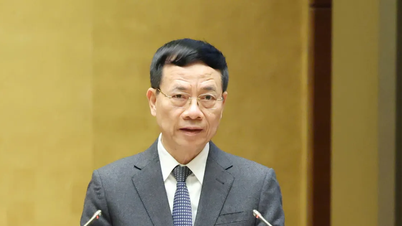









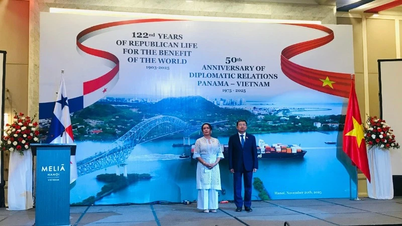
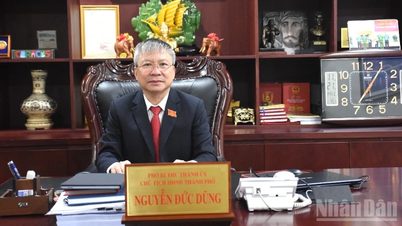
![[Video] The National Assembly enters its 26th working day, discussing the draft Law on Artificial Intelligence](https://vphoto.vietnam.vn/thumb/402x226/vietnam/resource/IMAGE/2025/11/21/1763691891182_image.jpeg)
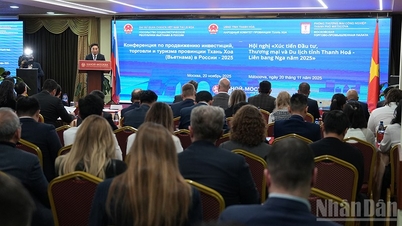
















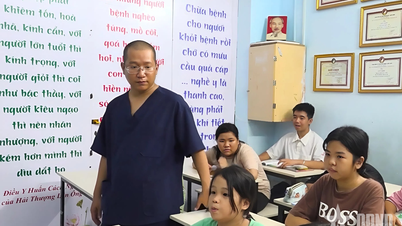

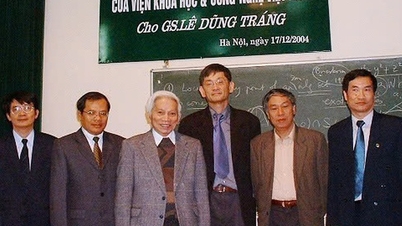






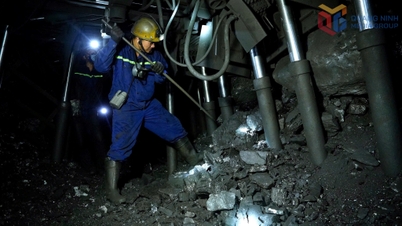



















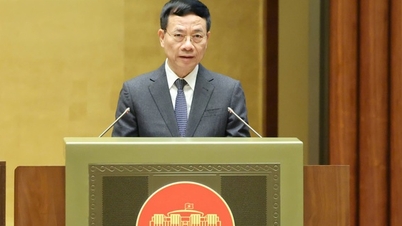








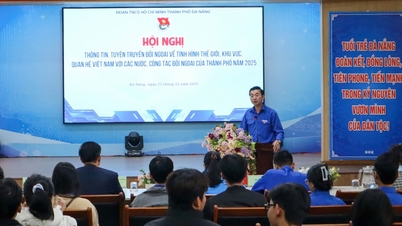

























Comment (0)